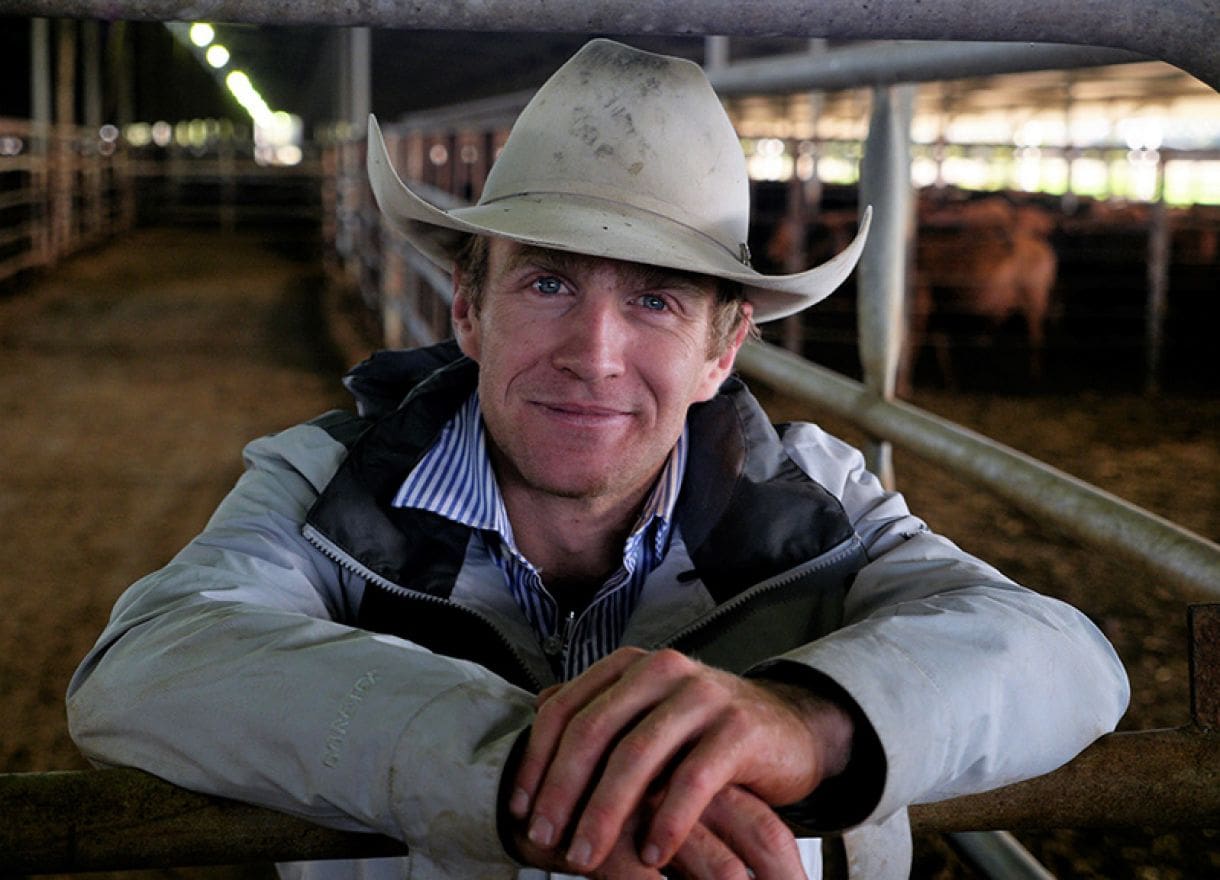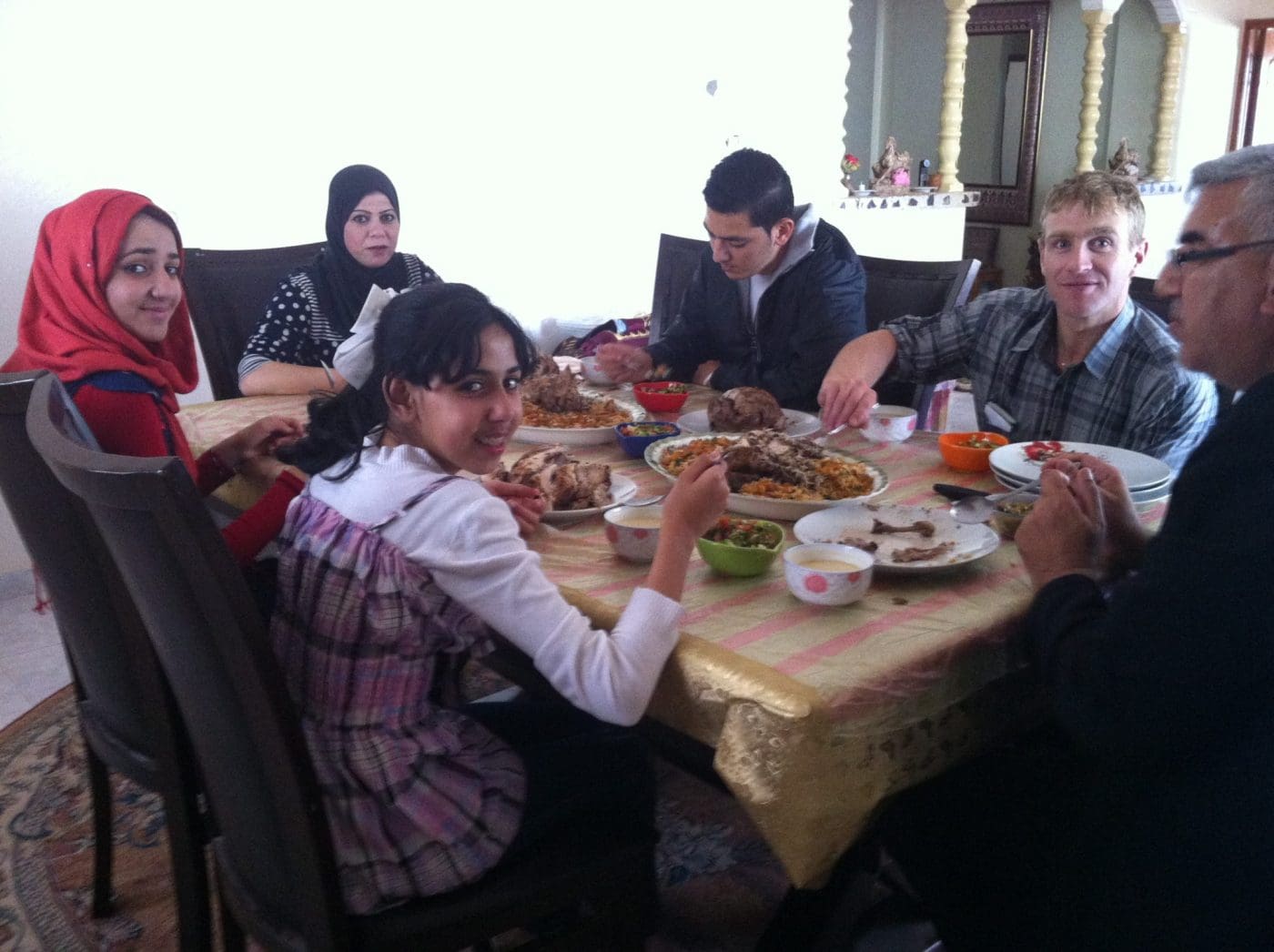Victorian cattle producer, Marcus Oldham graduate and export trade consultant Byron O’Keefe has worked in the livestock export industry since 2003, and was named Australia’s Young Livestock Exporter of the Year in 2016. Here he provides unique, personal and relevant insights into why many believe the sheep export industry is an industry worth supporting not only by Australia but for people, livestock and food security in the countries it serves.
WHEN we discuss the exporting of live sheep by large ships from Australia to countries in the Middle East, the majority of people immediately think of questions such as: do they have access to water and feed, are they crammed into these spaces with out room to move and on top of each other, and what is the environment like when they arrive to their destinations in lands most have never seen nor heard of except for in the news, mostly regarding civil unrest and conflict in the region?
Live export entails much more than people think. The focus is on animal welfare, but ultimately we are dealing primarily with the human aspect and the welfare and conditions of the people working with the livestock, which in turn provides better animal welfare outcomes.
Why you might ask? Let me dive a little deeper into the live export trade.
I have been fortunate enough to work with our live trade partners across the globe, from warm and humid late nights in the abattoirs of SouthEast Asia, sophisticated high tech systems in the Middle East that include air conditioning for the livestock or the cold months in Turkey where Europe meets West Asia and livestock are housed inside to keep warm, no system is the same but they all have commonalities.
We can describe the freshwater in Egypt that is manually monitored 24 hours a day to ensure the levels and quality are maintained or the feedlot rations that have been meticulously measured by experts to ensure animal performance is maintained during the changes in stock class and weather, and the other day to day conditions.
Yet I think we are past this point in the discussion of animal welfare, as these measures have failed to capture the attention of many.
We need to provide a better picture of the supply chain partners and how they depend on the live trade and what it means to them and us collectively.
Vessels will arrive at different times of day to the Port due to various reasons such as docking space, weather delays or other factors. At times this can be in the darkness. An arrival at a port at 1 am means starting a discharge at 4 am when most people are still tucked up in bed. The assertion that arrival time is co-ordinated to sneak into a country before the animal activists get the heads up that they are arriving is propaganda, as technology and the use of marine apps allows the general population to get a clear picture of the direction and location of vessels.
Discharges can vary in length, work around the clock and string out for several days if it is a large consignment with multiple lines and customers. The key to a successful discharge is the stevedores, it is important to ensure they are rested, fed and hydrated. Recognition that it is a tough job and that it can suck standing out in the elements unloading a livestock vessel for days is as simple as buying the lads their favourite energy drink or a juicy fresh orange to keep up morale and help provide a link between their health and the health of the animals.
Sleeping at the port in a shipping container on a cold Turkish night or getting shut eye out in the open air on the beautiful warm evenings in Aqaba, Jordan. I have experienced it all with the local teams.
In the feedlots it can be a very similar experience to the ports, long days and nights with the majority of the labour force being men that are travelling abroad for work. They have left their families in Egypt, Syria, Somalia or Nepal and are working in feedlots/farms for what in most cases is a minimum monthly wage, that we would all fail to live on for a week, let alone a month. Their contracts (if they have one) range for various lengths, it is not uncommon for them to be away for two years at a time. Yet they are immensely grateful.
Training in abattoirs has been pivotal in up-skilling stockmen and propelling them from a low status worker who previously would be considered expendable, to a most valuable person in the facility with the ability to stop processing if they foresee animal welfare was going to be compromised.
I have shared meals with people who have very little income, possessions, education and come from very different backgrounds than myself, yet when we sit together to discuss things such as taking care of our livestock, we connect and build strong relationships that stretch across the world and last for a lifetime. I have been invited for lunch in their family homes, gone on family trips to the seaside, celebrated birthdays, religious festivals and enjoyed countless amazing meals and hours of conversations all through the bridge of animal welfare.
Where are you going to get your next meal or fresh produce isn’t normally a daily thought for the everyday Australian, yet in the countries I have visited over the past 12- 13 years it is a reccurring experience. I have trained Syrian men in Turkey about the importance of animal welfare, while their cousins just a few hundred kilometres away were dying in Syria from the disaster that is war. I have shared a beautiful homemade chicken meal with rice in the dining room of a palestinian family, sitting next to a dozen 12 volt batteries which ensures they have power when the military decides to cut power for hours at a time without warning. Tragically this family is no longer living in their home due to the most recent war, and I am unsure of their current location.
If Australia is removed, trade will continue from suppliers without animal welfare standards
If Australia is removed from this important trade, trade will still continue on, sheep will still come from countries such as Romania, Sudan and Somalia, but what is lost is the trade of information and influence of improving a supply chain for the good of all livestock through the system. I have not once in over a decade come across any person from another exporting country providing on the ground animal support for their trade partners.
As I write this I am preparing my own property and livestock for the month of June as I will be travelling to the Middle East for Eid Al Adha, leaving my wife (who also has her own business) and kids to run our operation. The timing couldn’t be much worse to be honest, a failed 2023 Spring resulted in pasture growth not meeting normal expectations and production levels and now a dry Autumn with minimal rain and very little pasture growth leading into Winter.
So the question is, why do I drive four and a half hours to Melbourne, catch two planes and finally arrive in the Middle East 30 odd hours later from door to door? Because of the people and the livestock and the opportunity to make their lives better.
Victoria has barely reported on the live sheep trade, it is a distant whisper. Even stock agents in Victoria aren’t equipped with the knowledge that this decision is a step towards a dark path of ignoring science and recent performance of an industry. It is adhering to the voices of a minority group that doesn’t understand the agricultural landscape and has no intention to do so.
A reduction in mortality rates by 81 percent in ten years, now down to 0.18pc for sheep exported by sea in 2023, demonstrates the desire and willingness for continuous improvement. If an industry can improve and evolve at this level, yet still be driven out of business through misinformation and propaganda, then we all need to be on notice regardless if you are a sheep producer, beef producer, dairy farmer, vegetable grower or a coffee shop owner in the city. These decisions will affect you and your families.
In 2011, when the live cattle export industry was at its knees and was facing the possibility of closure, people were looking for alternative careers and jobs. Now in 2024 the sheep live export industry is on its knees and I hope this small insight can help people understand the importance of the industry.
Food security is the vital link
Food security is the vital link in all of the above. Food security is a word that we hear very little of in our nation, primarily because we are a net exporter of our produce and we produce a far greater quantity of food than our small population can consume, in excess of 70pc of what we produce is bound for the dining room tables of our trading partners. COVID 19 gave the Australian public a small glimmer of what it is like to not be able to go to the local shop and source the food and essential supplies that we are accustomed to on a daily basis due to logistical difficulties and other restrictions. We all witnessed the local consumer flock to key staples such as fresh meat and vegetables when they were available, and leave the rest of the highly processed foods on the shelves.
If we are not careful about our nation’s direction regarding our agricultural production systems and decisions we make such as live export and the flow on impacts of trade restrictions, food security will become a more prevalent issue for Australia.
Live Export is not just about the ships and the animals, it is about improving human welfare through education, sharing knowledge and building relationships that subsequently has a positive impact on animal welfare.



